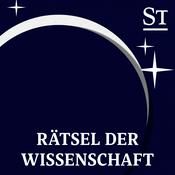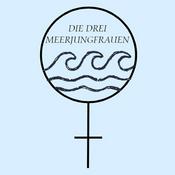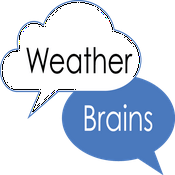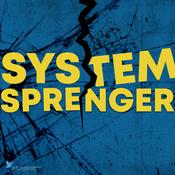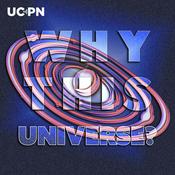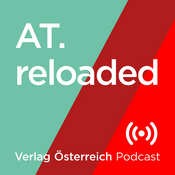A just state for everyone? Researching access to administrative justice in the digital era

10 Episoden

Episode 10: Opposing digitality and AI: citizens' practices
31.10.2025 | 11 Min.
Send us a textIn this episode we explore a topic that has come up in all our case studies in the different world regions, even though in different forms, namely opposition and resistance to the state’s increasing use of digital tools and AI. From South Africa to Canada, from the Caribbean to South Korea – everywhere there are at parts of the population that do not necessarily agree with how their public administration digitalizes and automates its services. Scholars agree that modern society functions as a complex human-machine social system, where machines are not merely tools but active participants in shaping social outcomes. This presumption becomes particularly prevalent in the context of citizen-state interaction, where a power imbalance is already inscribed. In this episode we thus look at citizens’ resistant practices vis-à-vis governments’ use of technology.See more on the project: https://www.hcw.ac.at/en/forschung/projekte-und-aktivitaeten/digital-public-services-and-ombuds-role-in-access-to-justice.htmlSee more on my work: https://personen.hcw.ac.at/julia-dahlvik/

Episode 9: Omnipresent digitality and AI’s limits: South Korean experiences
23.6.2025 | 13 Min.
Send us a textIn this episode I share insights from my field research in South Korea, one of the leading countries in the domain of digitalization and AI. I discuss the omnipresence of digitality, which refers to the condition of living in a digital culture, as I encountered it in public space and in interviews with people working in the public sector. The interview partners highlight that there are certain things AI cannot do (yet) and that in some cases there is only a thin line between protection and surveillance, for instance, regarding the so-called smart plug which monitors movements in people's homes. The full photo documentation can be found here: juliadahlvik.wordpress.comSee more on the project: https://www.hcw.ac.at/en/forschung/projekte-und-aktivitaeten/digital-public-services-and-ombuds-role-in-access-to-justice.htmlSee more on my work: https://personen.hcw.ac.at/julia-dahlvik/

Episode 8: Digital Challenges in South Africa
15.3.2025 | 17 Min.
Send us a textIn this episode we explore current challenges with regard to accessing public services in the digital age in South Africa, in particular in the rural areas. Accounts from different perspectives - citizen, government official and public ombuds staff - identify similar problems, such as lacking infrastructure, expensive data, trust issues, literacy and digital literacy. Despite numerous policy programs by the government, implementation is slow, leading to parts of society being left behind in case of a digital-first public administration. See more on the project: https://www.hcw.ac.at/en/forschung/projekte-und-aktivitaeten/digital-public-services-and-ombuds-role-in-access-to-justice.htmlSee more on my work: https://personen.hcw.ac.at/julia-dahlvik/

Episode 7: The role of language in accessing administrative justice
24.11.2024 | 13 Min.
Send us a textIn this episode I share interviewees' accounts from my case studies in Canada, South Africa, Curacao and Sint Maarten on the issue of language, linguistic diversity and literacy when it comes to accessing public services and the justice system. People's experiences in these very different places demonstrate the universality of the problem, when public services and courts cannot be accessed in the languages the people actually speak. Illiteracy, of course, makes it even more difficult to follow an administrative or legal procedure. See more on the project: https://www.hcw.ac.at/en/forschung/projekte-und-aktivitaeten/digital-public-services-and-ombuds-role-in-access-to-justice.htmlSee more on my work: https://personen.hcw.ac.at/julia-dahlvik/

Episode 6: From automation to frustration
05.9.2024 | 13 Min.
Send us a textIn this episode we discuss some of the experiences people have when they try to get in contact with the public administration. Especially (semi-)automated telephone hotlines create frustration among citizens who want or need to talk to a public agent. Our interviewees from the case study in Quebec, Canada, report about long waiting times and the impossibility of reaching the right person for a certain matter. Importantly, the administration is deemed to shirk its responsibility not only by outsourcing administrative tasks to the citizens but also by appearing as an anonymous entity both on the phone and in email communication. Citizens don't know who they are interacting with, so noone in particular can be held responsible for certain information that was provided or actions that were taken by the agent. See more on the project: https://www.hcw.ac.at/en/forschung/projekte-und-aktivitaeten/digital-public-services-and-ombuds-role-in-access-to-justice.htmlSee more on my work: https://personen.hcw.ac.at/julia-dahlvik/
Weitere Wissenschaft Podcasts
Trending Wissenschaft Podcasts
Über A just state for everyone? Researching access to administrative justice in the digital era
Höre A just state for everyone? Researching access to administrative justice in the digital era, Radiowissen und viele andere Podcasts aus aller Welt mit der radio.at-App

Hol dir die kostenlose radio.at App
- Sender und Podcasts favorisieren
- Streamen via Wifi oder Bluetooth
- Unterstützt Carplay & Android Auto
- viele weitere App Funktionen
Hol dir die kostenlose radio.at App
- Sender und Podcasts favorisieren
- Streamen via Wifi oder Bluetooth
- Unterstützt Carplay & Android Auto
- viele weitere App Funktionen


A just state for everyone? Researching access to administrative justice in the digital era
App laden,
loshören.







